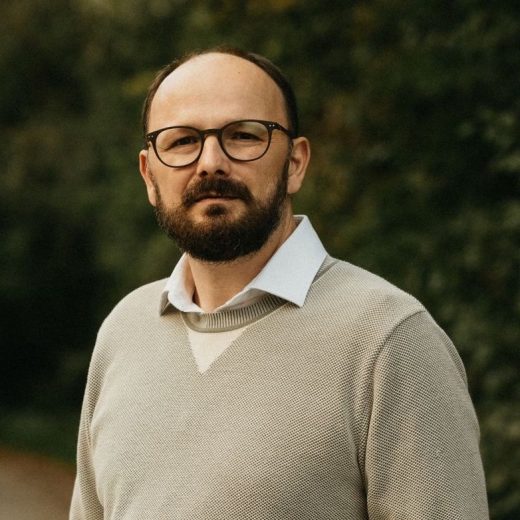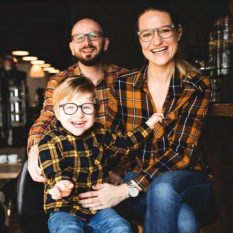Lenka and Radoslav Hajgajda founded the Association of Gene Therapy after the birth of their son Oliver, who was diagnosed with Angelman Syndrome. Since 2018, this non-profit organization has primarily been involved in supporting the basic research of the Czech Centre for Phenogenomics, focusing on the treatment of rare diseases. Today, on February 15th, we also commemorate International Angelman Syndrome Day.
A frequently mentioned term in this field is mouse models, which help uncover the causes of human diseases and enable the testing of new therapeutic approaches.
The main inspiration for establishing the Association of Gene Therapy (ASGENT) was your son Oliver, who was diagnosed with Angelman Syndrome. How challenging was it to start with the mission of your organization, which is to connect the worlds of science, medicine, and patients?
At the very beginning, support from a patient family initiative seemed like science fiction to us. However, my husband came up with this idea very early on, shortly after our son’s diagnosis. One thing that helped us at that time was a dark humor. We tried to take things as they were and stay above them as much as possible. One evening, we came up with a joke: “What would be the ideal gift for a boy with Angelman Syndrome?” “Well, a mouse with Angelman Syndrome, of course,” my husband replied, unwittingly foreshadowing the mouse model that scientists at the Czech Centre for Phenogenomics are now studying to help people with rare diseases.
Radoslav, my husband, initially contacted the Czech Academy of Sciences, through which we eventually reached the Czech Centre for Phenogenomics (CCP). During our meeting, the head of CCP, Radislav Sedláček, informed us that we were a welcome assistance. According to his words, we were the first patient family to decide to support basic research, and the popularization of science and research in the Czech Republic lags behind, and we, as close relatives of a patient, can help in this regard. The idea of basic research is often elusive to the general public because its practical application is possible only in the future.
You can read whole interview here: zde.

